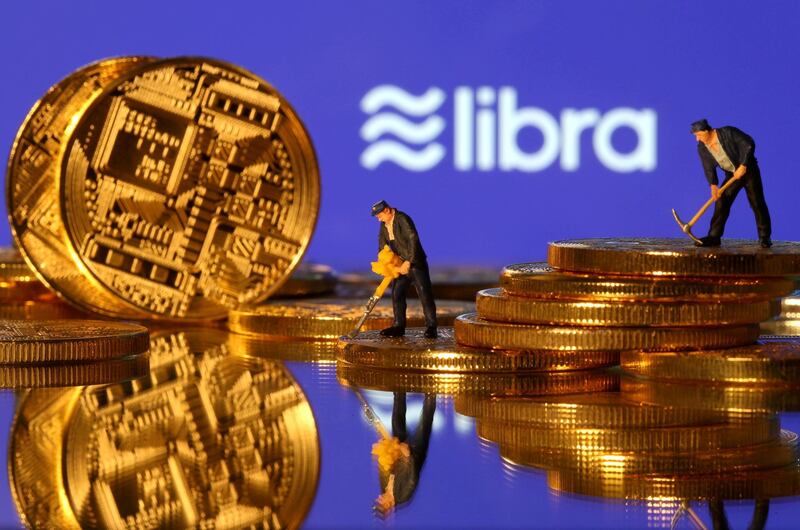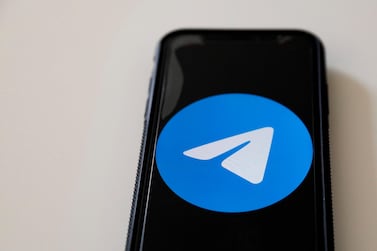It’s just as well that big companies that process and facilitate payments have quit Facebook’s Libra cryptocurrency project, fearing a regulatory backlash. If Facebook really wants to bring financial services to the “unbanked” it should try doing it on a smaller scale than these companies’ presence promised. And even then, the probability of failure will be high.
It’s clear why PayPal Holdings, Stripe, eBay, MasterCard and Visa have decided not to join the Libra Association, which Facebook has been organising to run the proposed digital currency. They took seriously the recent warning of Senators Brian Schatz of Hawaii and Sherrod Brown of Ohio that because of their membership, they could “expect a high level of scrutiny from regulators not only on Libra-related payment activities, but on all payment activities.”
The concern is that a cryptocurrency used in conjunction with encrypted messaging could potentially be used in illegal transactions, and anyone involved in creating such an opportunity would be suspect.
US regulators are perfectly capable of scuppering major cryptocurrency projects. On October 11, the US Securities and Exchange Commission announced it had stopped Telegram Group from distributing digital tokens, so-called Grams, to the investors who contributed $1.7 billion (Dh6.2bn) to the creation of the cryptocurrency last year. These include major US venture capital firms such as Benchmark, Sequoia and Lightspeed. The same could easily happen to Libra.
That’s the problem with starting so big. Telegram’s token offering was the biggest ever recorded. Facebook made a big announcement on Libra and presented a list of partners that read like a Who’s Who of the payments industry. They envisaged global launches for their cryptocurrencies. Of course regulators and politicians were alarmed.
To avoid this kind of outcome, Facebook — whose stated goal with Libra is to offer affordable payment services and loans to people currently priced out of the financial services market — could have tried the strategy that got results for one of its remaining partners, Vodafone Group.
Vodafone launched M-Pesa, Kenya’s renowned “mobile money” in 2007, and one of the project’s major assets was the Kenyan central bank’s consent to the launch without any formal regulation. Vodafone’s local cellular operator, Safaricom, quickly built up a network of stores where people without bank accounts could pay in and receive cash, and old-fashioned mobile phones began to double as wallets for transfers and purchases. The lack of regulatory intervention and the large physical network, fed by relatively generous commissions, made sure that by 2019, M-Pesa claimed 37 million active customers in seven African countries.
But attempts to transplant the service to many other markets have failed. Vodafone has closed M-Pesa in India (in part because of regulatory obstacles), South Africa (low customer interest), Romania and Albania (apparently it was unprofitable). Vodafone discovered there was no cookie-cutter solution. In different countries, lenders, retailers and mobile operators offered competing services, and regulatory scrutiny varied.
To find countries in which to launch such an electronic money service, one would need to go down the list of nations with large populations of the unbanked. The top 20, according to the World Bank, includes big ones, such as China, India, Indonesia and Brazil.
But in most of these countries, people are already using some form of digital money in lieu of dealing with traditional financial institutions. That’s why the list of 20 countries with the smallest percentage of people who have recently made or received digital payments looks completely different.
In other words, it’s not easy to find a country where a lot of people have neither a bank account nor access to other kinds of financial services. And then there’s a chance that the cash-using population of a specific country wants to stay that way. One possible reason M-Pesa didn’t quite work in Albania and Romania is that these countries have large informal economies. With up to a third of gross domestic product “in the shadow”, traceable electronic transactions are unattractive compared with cash.
These difficulties of finding good target markets, and ones with friendly regulators to boot, should explain Facebook’s desire to launch at scale, to throw everything at the wall and see what sticks. But the risk with this approach is that the idea of offering cheap financial services to the unbanked begins to look like a smokescreen for building a huge unregulated bank in the developed world — just what regulators in Europe and the US fear the most.
Instead of pushing ahead with the remaining partners and risking the same kind of trouble as Telegram, Facebook should go back to the drawing board and start thinking of smaller projects tailor made to specific countries’ requirements. Expansion would be slow, and there would be failures and miscalculations along the way, but regulators in each market might be easier to persuade that the project’s goals aren’t nefarious.
Bloomberg







